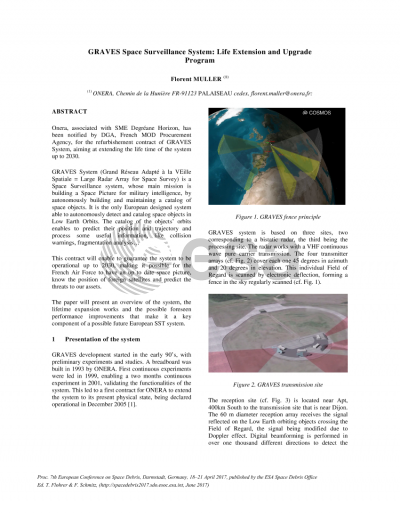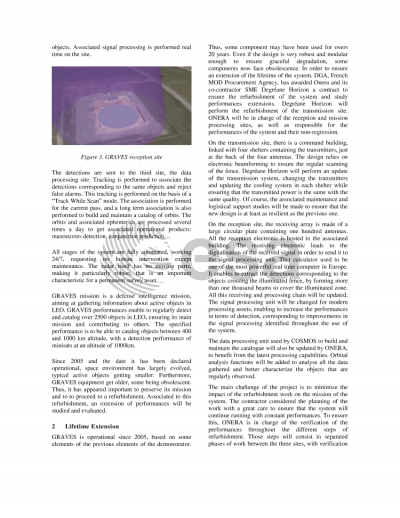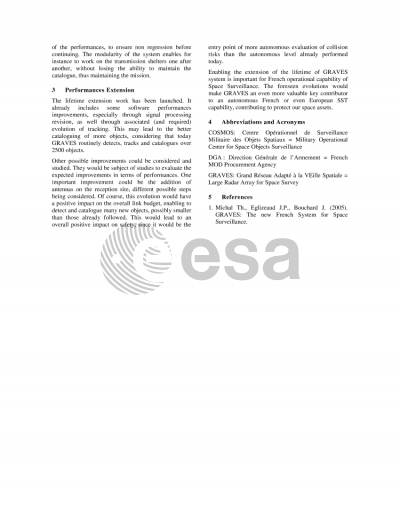Document details

Abstract
Onera, associated with SME Degréane Horizon, has been notified by DGA, French MOD Procurement Agency, for the refurbishment and upgrade contract of GRAVES System, aiming at extending the life time of the system beyond 2030.
GRAVES System (Grand Réseau Adapté à la VEille Spatiale = Large Radar Array for Space Survey) is a Space Surveillance system, whose main mission is building a Space Picture for military intelligence, by autonomously building and maintaining a catalog of space objects. It is the only European designed system able to autonomously detect and catalog space objects in Low Earth Orbits. The catalog of the objects’ orbits enables to predict their position and trajectory and process some useful information, like collision warnings, fragmentation analysis… Today, the system enables to detect and catalog objects of the size of minisats at an altitude of 1000 km for inclinations above 35°.
The system consists of a fully automated bistatic radar, (i.e. located on two sites: transmission near Dijon, reception 400 km South on the Plateau d’Albion) and a processing station performing plots association and orbital analysis, located on an Air Force Base near Lyon. It is operated by COSMOS (Centre Opérationnel de Surveillance Militaire des Objets Spatiaux = Military Operational Center for Space Objects Surveillance).
GRAVES system has been designed and developed by ONERA since the early 90s. It is operational for the French Air Force since December 2005. In 2010, ONERA had performed a preliminary study for this phase of refurbishment that also enabled to enhance and add some functions to the processing station.
The contract will enable to perform a full refurbishment of the system, changing the oldest equipments, in order to extend the lifetime of the system. It will also include an update of the system against the latest threats and constraints, as well as some functional and processing upgrades. The contract will include options enabling to perform studies in order to analyze and evaluate different possible enhancement, in order to face the evolution of the space population. Depending on the results of these studies, others options corresponding to physical enhancements could then be performed to improve the performances of the lifetime-expanded system.
ONERA will be in charge of the reception and mission processing sites, as well as responsible for the performances of the system and their non-regression. Degréane Horizon will perform the refurbishement of the transmission site.
This contract will enable to guarantee the system to be operational at least up to 2030, making it possible for the Air Force to have an up to date space picture, know the position of foreign satellites and predict the threats to our assets.
The paper will present an overview of the system, the lifetime expansion works and the foreseen performance improvements that make it a key component of a possible future European SST system.
Preview





